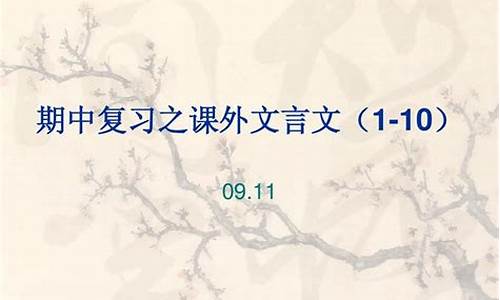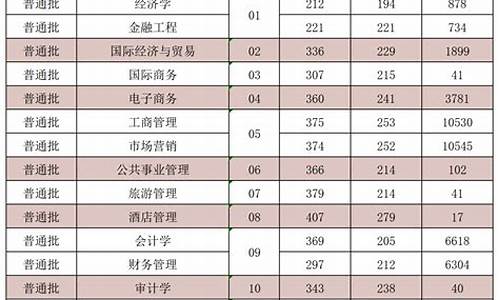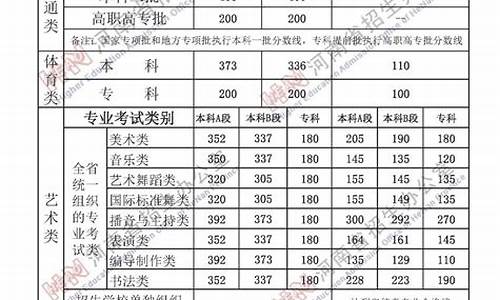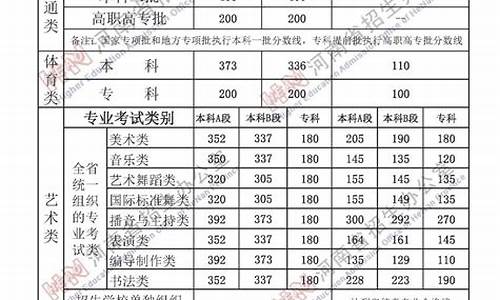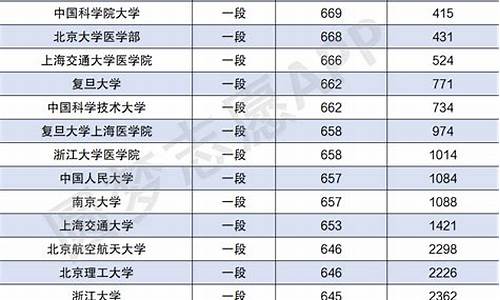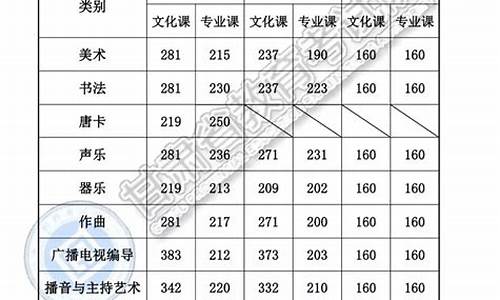英语高考阅读理解词汇,英语高考阅读理解
1.高考英语阅读理解解题技巧,文章看不懂怎么办(有分)
2.高考英语阅读理解训练
3.高考英语阅读理解考前训练
4.高考英语阅读理解专项训练题
5.高考英语阅读理解类型

高考英语阅读大智慧:找到正确流程\x0d\:\x0d\ 在课堂内外常有学生问到一个问题:在高考阅读的解题中,到底应该先看题目还是先看文章。可以说,这是高考阅读教学中的经典问题之一。通常情况下,我的回答是“习惯是人生伟大的指南”。因为不管是什么样的解题顺序,首先你要养成一个正确的阅读习惯,在好的习惯的指引下,任何题型的文章你都可以融会贯通,点面俱到。\x0d\\x0d\ 通过长时间的高考阅读的研究和整理,我大体将目前学生的阅读流程分为三类:\x0d\\x0d\ 第一类:读文章——做题目——回头再读文章\x0d\\x0d\ 此为传统方法,命中率高,但速度稍慢。优点是能够迅速理解全文的主题脉络,连贯地进行信息的排查,缺点是由于人的记忆力有限,很多细节在做题时已经忘却,有不确定的地方仍需回到原文细细查找,寻找依据,耗时费力。这种方法的使用,需要较好的英文基础外加优秀的强记能力,一般使用于高分段的学生。\x0d\\x0d\ 不过,这种阅读流程的效果不单纯作用于考试,还可以切实提高英文阅读水平,对同学们大学以后的学习大有帮助。所以这种阅读顺序,我推荐给高一高二的学生在平时的阅读解题中大可以培养这种习惯,一方面确保准确率,第二稳步提升自己的英文阅读实力,但对于高三的同学,这种方法有些欠妥。由于复习时间的紧张,我们最好摒弃掉此类阅读习惯。\x0d\\x0d\ 第二类:读题目(题干+选项)—— 读文章 —— 做题目\x0d\\x0d\ 其实此类方法分两种,一种是只看题不看选项,即大致看看问题,然后带着问题再看文章;另一种是将题干和所有选择项看完,再看文章。第一种的优点是节约时间,缺点是由于不看选项,对于细节缺乏必要的把握,同样要返回文章找寻关键点,而且定位的时候没有精确的坐标;第二个就相对而言科学很多,优点是明了要重点注意的目标信息,有很好阅读的针对性,缺点是相对读文章的时间少了,难免断章取义缺少宏观的把握,容易陷入干扰选项设置的陷阱之中。\x0d\\x0d\ 对于高三的同学们,我还是建议多使用这种方法,方法虽有利弊,但对于时间紧张的你们,往往事半功倍。\x0d\\x0d\ 第三类:读主题——读题目—— 读全文——做题目\x0d\\x0d\ 个人认为这种方法较以上两种更为全面和严谨,而我在新东方的课堂的上也是建议给每位同学们练习这种方法,养成很好的阅读习惯。\x0d\\x0d\ 这种方法即先看懂各段首尾句或短文的第一段,大致明了文章的主题。此后细细地阅读题干推敲选项的大致设置,思考作者的行文规律和命题者的出题陷阱,然后带着已经在首尾句获得的信息和在题目中假设的思路回头进行有目的性的查找工作,准确率高且耗时相对较少。而我们现在的高考阅读文章均取自国内外的英文刊物,少有命题组自行行文的类型,此类文章逻辑严谨,结构清晰,所以气定神闲地先读完各段的首句再耐心的推敲考题选项的设置,往往会直接将四个选支排除掉一个或两个,这无疑对我们的解题帮助极大,减少了我们判断的压力轻松地将文章读完。\x0d\\x0d\ 高考阅读虽错综复杂,但是只要你养成很好的阅读习惯,加上一些必要的解题技巧是一定能征服它的。新东方流传一句话“得阅读者,得天下”,可见阅读是高考的重中之重,所以让我们一起努力吧,征服阅读,战胜高考。\x0d\\x0d\ 在课堂内外常有学生问到一个问题:在高考阅读的解题中,到底应该先看题目还是先看文章。可以说,这是高考阅读教学中的经典问题之一。通常情况下,我的回答是“习惯是人生伟大的指南”。因为不管是什么样的解题顺序,首先你要养成一个正确的阅读习惯,在好的习惯的指引下,任何题型的文章你都可以融会贯通,点面俱到。
高考英语阅读理解解题技巧,文章看不懂怎么办(有分)
1、掌握所读材料的主旨和大意;
2、了解用以阐述主旨的事实和有关细节;
3、根据上下文判断大纲附表以外的某些词汇和短语的意义;
4、既理解个别句子的意义,也理解上下文之间的逻辑关系;
5、根据所读材料进行一定的判断,推理和引申;
6、正确领会作者的观点和态度。
有鉴于此,本文将讨论高考英语阅读理解中针对以上情况设计的题型,帮助考生熟悉常见题型,掌握解题策略和技巧。
解题方法:
1)定位法
根据题干或选项中的线索词回原文,找到相关句,与选项相比较确定答案。
2)固定思路
这种做题方法主要与三正一误的下列问法相联系:
Which of the following mentioned except…
Which of the following is not mentioned…?
这种问题的正确选项所包含的信息通常连续出现在同一段,而且往往无列举标志词,如first,second,third等。做题时只需阅读有关段落,根据一个选项中的关键词在其前后找其他两个正确先项,剩下一个原文中未提到的,为正确答案。
2、例证题
例子为高考阅读理解的常见考点之一,这类题的基本结构为The author provides in line…(或Paragraph…)an example in order to…意思是问文中举出某现象或例子的目的。高考阅读理解文章如果是说明文和议论文,文章中举出一些例子无非是为了说明一定的道理。关键在于这个例子在原文出现的位置,但不管如何,这个例子之前或之后不远处通常都有一句总结说明性的话,这句话就是答案,即举例的目的。如果例子与全文主题有关,则例证主题,答案为主题句。如果例子与段落主题有关,就例证段落主题,则答案为段落主题句;此外,答案为例子前后总结说明性的话。
3、其他形式的具体题
1)定义
定义可以分为两种:
a.与主题有关的篇章定义,理解它有助于做主旨题。
b.具体定义对中某个现象或术语加以定义,有时成为词义题的考试内容。
2)年代与数字
这个考点有几种出题方式,但不管以何种形式出现,只要题干问年代与数字,答案就对应于文章中的年代与数字。
3)比较
比较考点的表现形式主要有:
a.比较级与含有比较意义的词汇手段和句型结构;
b.表示绝对意义的字眼:
first(第一),least(最不),uttermost(最)等;
c.表示惟一性的词汇:only,unique等;
阅读最最好能圈草表示最高级、惟一性和绝对意义的词汇,便于做题对回原文定位。
4)原因
这种题的答案在原文通常有一些表示因果关系的词汇手段提示:1)表示因果关系的名词:result,reason;2)表示因果关系的动词:result in(结果),result from(由于,由),base…on…(以……为基础),be due to (由于);3)表示因果关系的连词或介词:because,for,why;4)表示因果关系的副词;as a result,consequently等,阅读时对这些提示词应该予以注意。
除了上述原文有因果关系提示词的显性原因考点之外,隐性原因(两个句子之间为因果关系,但无有关提示词)也是常见考点。不管是显性原因考点,还是隐性原因考点,原文相关句出现的格式都是先说原因,后说结果,而在题干中通常给出结果,就其原因提问。
三、词义题——学会推断
要做好这类题,首先必须熟练掌握中学英语教学大纲列出的约2000个词汇与一定数量的短文,这是最起码的要求。其次,掌握必要的做题技巧也很重要。不过词义题中所考单词的意义通常超出大纲,所以根据上下文推断词汇的能力在考试中显得尤其重要。这种能力可以通过下列几种方法加强:
1、破解词汇本身的意义
如何破解词本身的意义呢?方法之一是掌握构词法的基本知识。不仅平时可以用这个方法记忆大纲中的词汇,考试时也可以用这个方法推测词汇意义。假如对英语词汇中包含的前缀、后缀和词根的含义或功能比较了解,就能较准确地推测出它们相互组合形成的整体词义。
2、利用一下文线索
除了以构词法破解词汇的意义以外,做词义题用得更多的方法是根据上下文所提供的线索词义。这里的上下文指该词所在的句子本身,也包括这个句子的上下句或更远的上下文。一般而言,上下文线索所提示的意义与所考词汇的关系要么为同义关系,要么为反义关系。假如二者为同义关系,那么所考词汇的意思就是线索提示词的意思;假如二者为反义关系,所考词汇的意思就是线索提示词的反义。
3、利用语法和逻辑
有时根据上下文提代的线索或者其他方法,仍然不能得到唯一答案,就可以利用语法和逻辑方面的规则来判断,符合语法和逻辑规则的可能为正确答案,反之则不是正确答案。
4、指代题
指代题作为词义题的一种,也是常见题型之一。解这类题,要注意代词批代总的原则——就近指代:代词指代在性(阴性或阳性)、数(单数或复数)、格(主格或宾格)、逻辑、意义、位置等方面与之接近的名词。就位置而言,如上所述,代词所指代的名词通常在本句或其上句之中;就数而言,单数代词指代单数名词,复数代词指代复数名词,例如:it 指代单数名词(单数可数名词或不可数名词),也可指代一个句子;they指代复数名词主格;them指代复数名词宾格;one指代单可数名词等。除了位置、性、数和格等方面的要求外,逻辑和意义也是衡量的标准,也就是说,正确的答案应该从意义(主要指语法搭配)上和逻辑(主要指思想内容)上而言都通顺。
四、推理题——考识别能力
推理题要求在理解原文表面文字信息的基础上,作出一定判断和推论,从而得到文章的隐含意义和深层意义。推理题所涉及的内容可能是文中某一句话,也可是某几句话,但做题的指导思想都是以文字信息为依据,既不能做出在原文中找不到文字根据的推理,也不能根据表面文字信息做多步推理。所以,推理题的答案只能是根据原文表面文字信息一步推出的答案:即对原文某一句话或某几句话所作的同义改写(paraphrase)或综合。推理题的目的是考识别能力,并不涉及复杂的判断和推理。因此,其主要做法是:根据题干中的关键词或选项中的线索找到原文的相关句,读懂后,比照选项,对相关句进行同义改写或综合概括的选项为正确答案。做题时要注意题干的语言形式,如According to the passage,——It can be inferred from the passage that——;It can be concluded from the passage that——等,虽然从表面上看是问有关全文的题,但实际上不用看全篇,仍然只需要根据选项中的线索找到原文中与之相关的一句话或几句话,然后得出答案。针对推理题的不同形式,可以采取以下做法:1.假如题干中有具体线索,根据具体线索找到原文相关句(一句或几句话),然后做出推理;2.假如题干中无线索,如It can be inferred from the passage that——;It can be concluded from the passage that——等,先扫一下4个选项,排除不太可能的选项,然后根据最可能的选项中的关键词找到原文相关句,做出推理;3.如果一篇文章中其他题都未涉及文章主旨,那么推理题,如infer, conclude题型,可能与文章主旨有关,考生应该定位到文章主题所在位置(如主题句出现处);假如其他题已经涉及文章主旨,那么要求推断出来的内容可能与段落主题有关,如果如此,应该找段落主题所在处;如果不与段落主题有关,有时与全文或段落的重要结论有关,这时可以寻找与这些结论相关的原文叙述。
高考英语阅读理解训练
1、文章看不懂没关系,高考阅读肯定会设一定百分比的生词,就是起迷惑作用,不用过于担心。一篇文章就五道题,通读一下文章,会发现出题的考点往往和生词关联不大。
2、看不懂的词跳过,根据上下文猜意思,一般第一段和每段第一句话易出题,重点看看。
3、有时文章看懂了题也不一定选对,所以时间不够的情况下,先看题,在对照着题在文中可能的地方找答案就好,高考阅读一般答案都能在文中找到,需自己总结的不多,文中出现的词要特别注意。?
4、单词量很少,但阅读算是强项,就是靠语感去分析,多做题,平时多看看译文,总结出题型和考察的地方,猜也差不多能对。
阅读是运用语言文字来获取信息,认识世界,发展思维,并获得审美体验的活动。它是从视觉材料中获取信息的过程。视觉材料主要是文字和,也包括符号、公式、图表等。
阅读是一种主动的过程,是由阅读者根据不同的目的加以调节控制的,陶冶人们的情操,提升自我修养。阅读是一种理解,领悟,吸收,鉴赏,评价和探究文章的思维过程。阅读可以改变命运,但并不是一定改变命运。
科学阅读的一个基本原则是,阅读不能简单机械地重复,而必须带着良好的理解来阅读。阅读的效果取决于理解,而不是阅读的次数。
高考英语阅读理解考前训练
高考英语阅读理解精品训练2017
近几年高考英语阅读主要有猜测词义、理解主旨大意、推理判断、对文章的细节理解、 数据推算等几种题型。为了帮助大家备考高考英语阅读理解题,我分享了一些高考英语阅读理解练习,希望能对大家有所帮助!
阅读理解练习1
Not many years ago, a wealthy and rather strange old man named Johnson lived alone in a village in the south of England. He had made a lot of money in trading with foreign countries. When he was seventy?five, he gave ? 12,000 to the village school to buy land and equipment (设备) for a children?s playground.
As a result of his kindness, many people came to visit him. Among them was a newspaperman. During their talk, Johnson remarked that he was seventy-five and expected to live to be a hundred. The newspaperman asked him how he managed to be healthy at seventy?five. Johnson had a sense of humour (幽默). He liked whisky (威士忌酒) and drank some each day. ?I have an injection (注射) in my neck each evening.?he told the newspaperman, thinking of his evening glass of whisky.
The newspaperman did not understand what Johnson meant. In his newspaper he reported that Johnson was seventy?five and had a daily injection in his neck. Within a week Johnson received thousands of letters from all over Britain, asking him for the secret of his daily injection.
1. Johnson became a rich man through
A. doing business. B. making whisky. C. cheating. D. buying and selling land.
2. The gift of money to the school suggests that Johnson
A. had no children. B. was a strange man.
C. was very fond of children. D. wanted people to know how rich he was.
3. Many people wrote to Johnson to find out
A. what kind of whisky he had. B. how to live longer.
C. how to become wealthy. D. in which part of the neck to have an injection.
4. The newspaperman
A. should have reported what Johnson had told him.
B. shouldn?t have asked Johnson what injection he had.
C. was eager to live a long life.
D. should have found out what Johnson really meant.
5. When Johnson said he had an injection in his neck each evening, he really meant that
A. he liked drinking a glass of whisky in the evening.
B. he needed an injection in the neck.
C. a daily injection in the evening would make him sleep well.
D. there was something wrong with his neck.
阅读理解练习2?I?m very tired from working here,?said Jean to her friend Kate,? I?m on my feet from morning to night. For the first quarter of the day, I clean up the counter (柜台) and set the tables. For the next quarter, I help in the kitchen. For the second half of my workday, I take orders at the counters.?
?Kate, I wish I had your job,?Jean went on. ?For four hours you just sit at the cash register (收款台) taking in money.?
?But I spend two more hours in the kitchen (厨房) than you do,?said Kate. ?It?s tiring to cook over a hot stove. I don?t think you?d really want my job. In fact, I?d like your job.?
1. Both Jean and Kate probably work in a
A. hotel B. library C. lab D. shop
2. How long did they work every day?
A. eight hours B. twelve hours. C. Ten hours D. Nine hours
3. How long did Kate spend in the kitchen?
A. a quarter day. B. A half day. C. One-third day. D. Three-fourths day.
4. From this passage we can see that
A. they are both interested in their work. B. their work is neither tiring nor busy.
C. both of them are tired of their work. D. they?ve decided to give up their work.
5. Give a proper proverb (谚语) to Jean and Kate.
A. It?s never too late to learn.
B. It?s no use crying over spilt milk.
C. The grass is always greener on the other side.
D. One swallow(燕子) does not make a summer.
阅读理解练习3In 1985 a French television company sent its reporters to the Paris Metro. They took cameras to see what passengers would do if they saw someone attached on the platform or in the trains. They acted out incidents. The incidents looked real but they were all done with the help of actors. However, very few people tried to help, and most passengers pretended not to notice. in one incident, a foreigner was attacked by three men. The attack was on a train which was quite full, and although one man tried to get the passengers to help, they all refused. It seems that such behaviour(行为) is not unusual, but the question is why? Is it a problem of big cities, or would the same thing happen anywhere? To discuss these questions, we have in the studio(演播室) Professor Wilson, who is an expert on the subject?
1. Who did the experiment?
A. A French television company. B. The Paris Metro.
C. The City Government of Paris. D. Professor Wilson.
2. What did the experiment try to find out?
A. How a foreigner was attacked on the train.
B. How passengers helped each other on the platform.
C. Passengers? reactions towards incidents.
D. Actors? performances during incidents.
3. What was the finding of the experiment?
A. Passengers helped a lot during incidents.
B. Very few foreigners were on the train.
C. Very few passengers tried to help during incidents.
D. Some people were good at acting on the train.
4. Who do the underlined words one man refer to?
A. One of the three men who attacked a foreigner.
B. One of the actors who took part in the experiment.
C. One of the passengers who were on the train.
D. One of the reporters who were sent to the Paris Metro.
参考答案:
1A 2 C 3 D 4 D 5 A
1A 2 A 3 B 4 C 5 C
1D 2 C 3 C 4 B
;高考英语阅读理解专项训练题
高考英语阅读理解考前训练
高考英语阅读理解所选材料题材、体裁多样,上至天文,下至地理,都有可能涉及;所以大家在备考时要多做练习,熟悉各种题材。为了帮助大家,我整理了一些高考英语阅读理解题,希望能帮到大家!
英语阅读理解1
SINGAPORE-Another Thai worker died in his sleep last Friday, the second such death in the past three days and the 10th since the beginning of the year. Thongehai Sombattra, 22, is said to be the youngest to have died mysteriously this year. A total of 10 young Thai construction workers in their late 20s and 30s who appeared well and healthy when they went to bed have died since the beginning of this year. They were either found dead in the morning or had died suddenly in the middle on the night after some difficulty in breathing.
From China Daily, March 19,1990
1. According to the passage ______.
A. Ten people died mysteriously during the last three days
B. Two people died mysteriously during the last three days
C. Two people have died mysteriously since the beginning of the year
D. Ten people died mysteriously before last Friday
2. During the past three days, Thongchai Sombattra died last Friday, the other passed away ______.
A. last Monday B. last Thursday C. last Thursday D. last Sunday
3. Thongchai Sombattra, who died mysteriously, _______.
A. was aged 22 B. was in his mid twenties
C. was not more than 20 years old D. was nearly 30 years old
4. Besides Thongchai Sombattra, the others could be _______.
A. from 25 years old to 38 years old B. from 20 years old to 39 years old
C. from 21 years old to 39 years old D. from 29 years old to 38 years old
5. ______ caused the ten Thai construction workers? death.
A. An unexpected accident B. High blood pressure
C. Heart trouble D. Something that was unknown
英语阅读理解2The man sitting opposite Robert was the Financial Controller. Everybody called him ?the FC? for short. He made all the decisions about money. Robert needed some more. That was why he had to see him. The two men did not get on very well. In fact, they had always disliked each other.
?Your request is out of the question,? the FC said. Robert had difficulty in controlling himself, but he managed somehow. He explained that he wanted the money in order to make more programmes.
?And why do you want to do that? the FC asked sharply. Again, Robert almost lost his temper. ?Because more and more people are listening to my department?s programmes. There?s great demand for them,? he answered.
The FC did not seem to believe him. But Robert had a report on the numbers of listeners to all EBC programmes. The FC became less confident (自信). Robert threw the report down on the table and told him to read it.
The FC looked at it in silence. The figures (数字) proved that he had been wrong, but he did not want to admit it. ?Well,?he finally said, ?I may have made a small mistake.?Robert noticed the word ?may.? He got up to leave. But he had the feeling that he would get the money after all.
1. In the story the Financial Controller was a person who was in charge of
A. Robert?s department?s programmes. B. EBC programmes.
C. EBC money. D. both B and C.
2. ?Your request is out of the question.?Here ?out of the question?means
A. without any questionB. with some question. C. impossible. D. possible.
3. Robert decided to make more programmes because
A. he wanted to meet the needs of the listeners.
B. ?the FC?disliked him
C. the members of his department wanted him to do so.
D. he wanted to show himself off.
4. Why were more and more people listening to Robert?s programmes?
A. Because he always lost his temper (脾气).
B. Because he disliked ?the FC.?
C. Because the programmes were rich and to the taste of the listeners.
D. We don?t know.
5. Who do you think won the argument(争论)in the end?
A. The Financial Controller. B. Robert. C. Nobody. D. The listeners.
英语阅读理解3Not many years ago, a wealthy and rather strange old man named Johnson lived alone in a village in the south of England. He had made a lot of money in trading with foreign countries. When he was seventy?five, he gave ? 12,000 to the village school to buy land and equipment (设备) for a children?s playground.
As a result of his kindness, many people came to visit him. Among them was a newspaperman. During their talk, Johnson remarked that he was seventy-five and expected to live to be a hundred. The newspaperman asked him how he managed to be healthy at seventy?five. Johnson had a sense of humour (幽默). He liked whisky (威士忌酒) and drank some each day. ?I have an injection (注射) in my neck each evening.?he told the newspaperman, thinking of his evening glass of whisky.
The newspaperman did not understand what Johnson meant. In his newspaper he reported that Johnson was seventy?five and had a daily injection in his neck. Within a week Johnson received thousands of letters from all over Britain, asking him for the secret of his daily injection.
1. Johnson became a rich man through
A. doing business. B. making whisky. C. cheating. D. buying and selling land.
2. The gift of money to the school suggests that Johnson
A. had no children. B. was a strange man.
C. was very fond of children. D. wanted people to know how rich he was.
3. Many people wrote to Johnson to find out
A. what kind of whisky he had. B. how to live longer.
C. how to become wealthy. D. in which part of the neck to have an injection.
4. The newspaperman
A. should have reported what Johnson had told him.
B. shouldn?t have asked Johnson what injection he had.
C. was eager to live a long life.
D. should have found out what Johnson really meant.
5. When Johnson said he had an injection in his neck each evening, he really meant that
A. he liked drinking a glass of whisky in the evening.
B. he needed an injection in the neck.
C. a daily injection in the evening would make him sleep well.
D. there was something wrong with his neck.
参考答案:
1B 2 C 3 A 4 D 5 D
1C 2 C 3 A 4 C 5 B
1A 2 C 3 D 4 D 5 A
;高考英语阅读理解类型
在英语考试中,阅读理解占据着重要的位置。下面是我网路整理的以供大家学习。
一
“Linda, if beating yourself up were an Olympic sport, you’d win a gold medal!”
Annabel, my close friend, stunned me with that frank observation after I told her how I had mishandled a situation with a student in a third-grade class where I was substituting. “I should never have let him go to the boy’s room without a pass! It was my fault he got into trouble with the hall monitor! I’m so stupid!”
My friend burst out laughing, and then made her “Olympic” ment. After a brief period of reflection I had to admit that she was right. I did put myself down an awful lot. Why, just during the previous day I had called myself “a slob” for having some papers spread out on my desk, “ugly” when I left the house without makeup and “an idiot” when I left the house for an emergency substitute job without my emergency lesson plan.
In a more reflective tone, Annabel said, “I once took a workshop at church where the woman in charge had us list all the mean things we say about ourselves.”
“How many did you have on your list?” I asked.
“Fifteen,” she confessed. “But then the teacher said, ‘Now turn to the person next to you and say all the items on your list as if you were speaking to that person!’ ”
My jaw dropped. “What did you do?”
“Nothing. Nobody did. We all just sat there, until I said, ‘I could never say these things to anyone else!’ ”
“And our teacher replied, ‘Well, if you can’t say them to anyone else, then don’t ever say them to yourself!’ ”
My friend had a point. I would never insult a child of God---and I’m God’s child, too!
God, today let me be as kind to myself as I would be to another of Your children.
1. What does Annabel mean by the first sentence of the passage?
A. The writer is a good athlete. B. The writer scolds herself too much.
C. She is encouraging the writer. D. A gold medal is not a big deal.
2. What does the writer intends to tell us through the second and third paragraphs?
A. She has low self-esteem over some *** all things.
B. She often makes serious mistakes in daily life.
C. She is a third-grade teacher.
D. She cares too much about her appearance.
3. We can infer that the underlined word “slob” might be _____.
A. something untidy B. someone dangerous
C. something dirty D. someone lazy
4. What does the writer mean by the last sentence of the passage?
A. She is ready to turn to God for help.
B. She will be kind to all children.
C. She won’t insult herself as well as others.
D. She is willing to be a child of God.
答案:
1-4 BADC
二
Nowadays, people in China are increasingly interested in celebrating foreign festivals, especially those western festivals.
A survey conducted recently by sina. showed that among the 18,222 people surveyed 63.90% said celebrating Christmas is just another way of recreation, nothing serious, while 17.85% surveyed considered the festival as a fashion act, showing they were not “out”. These two parts clearly indicate the general opinion of the young. 10.45% people involved said the celebration of a religious western festival with so much enthusia *** is absolutely ridiculous pursuit of foreign goodness. Only 7.80% of the people define Christmas as a kind of festival colonization殖民.
The arising of celebrating foreign festivals clearly has something to do with the advancement of China’s economy. In my point of view, Christmas and other festivals celebrated in China have difference from the origin. They have lost their religious background and turned into a big occasion to have fun and enjoy life. Shop owners’ pockets are filled, the public’s hunger for happiness is filled, and that is enough. Foreign festivals in China are more like carnivals giving people pleasure and enjoyment.
The crisis危机 of traditional Chinese festivals that are losing their attraction may be linked to the culture tradition and background of the festivals. Most Chinese festival culture is related more or less to real life. “The country is based on its people while the people are relied on their food”.
But the western culture shows much of romance. Some festivals have their religious background while others have much to do with culture and people. At this point, food seems to be too plain. Flowers and chocolates are more weled.
Foreign festivals in China today are celebrated for fun. They give people opportunities to relax and celebrate, to show appreciation and gratefulness. The acceptance of foreign festivals generally depends on the openness of the public, the familiarity with the western culture, and most importantly, on people’s economic status.
5.From the survey we know that among the people surveyed ______.
A. most think celebrating foreign festivals is ridiculous
B. many fear that traditional Chinese festivals will disappear soon
C. some think that celebrating foreign festivals is a sign of foreign goodness chasing
D. half think celebrating foreign festivals makes people not go out of fashion
6.The writer thinks that foreign festivals celebrated in China ______.
A. have lost their religious background
B. are the same as those celebrated in the West
C. can give more fun than traditional Chinese festivals
D. may reduce the hunger of public people
7.What is the main difference between foreign festivals and traditional Chinese ones?
A. Foreign festivals can make Chinese shop owners’ pockets full quickly.
B. The food at foreign festivals is too simple.
C. Chinese festivals always have something to do with culture.
D. Foreign festivals are romantic while traditional Chinese ones are connected with reality.
8.Which of the following may NOT be the reason why so many people accept foreign festivals?
A. People can relax themselves.
B. People can show their thanks to others.
C. Foreign festivals have longer histories than Chinese ones.
D. People have known more about the western culture.
答案:
如今,中国人对西方的节日越来越感兴趣,而中国的传统节日越来越不受人们的重视,原因何在呢?中西方两种文化有何不同之处,西方节日在中国处于一个什么样的地位,接受西方的节日是对是错?读完这篇文章,相信我们会得到答案。
5.C。细节理解题。A项只有10.45%的人如此认为,most一词错误;B项will disappear soon错误;D项只有17.85%的人这么认为,很明显,half一词错误;依据文章第二段倒数第二句可知C项正确。
6.A。细节理解题。依据文章第三段第三句中的“They have lost their religious background and turned into a big occasion to have fun and enjoy life.”可知,A项正确;依据第三段中的have difference from the origin可知B项错误;C项文章没有进行比较;D项文章用的是the public’s hunger for happiness is filled,而非饥饿,故答案为A。
7.D。细节理解题。A项错误,文章第三段提及商家挣到了钱,公众的幸福感得到了满足,而并非外国的节日能够让店主的钱包迅速地鼓起来;B项too simple与原文不符;C项不是区别,两种节日都与文化有关。依据文章第四、五两段可知,D项正确,两种节日的区别在于西方的节日浪漫,而中国的节日则与实际生活密切相关。
8.C。细节理解判断题。文章没有提及中国的节日与西方的节日相比谁的历史更悠久,故C项错误。
高考英语阅读理解类型
阅读理解是高考英语试卷中卷面分值最高的,为了方便考生们更好地复习英语,我在这里整理了高考英语阅读理解类型及答题技巧,希望能对考生们有所帮助!
英语阅读文体类型简析
高考英语阅读常见的文体类型有:记叙文、议论文、说明文和应用文。
[1]、记叙文。
英语记叙文以描写叙述为主,主要描写人物、事件、地点、或过程。特点是,其主题往往潜伏在字里行间,没有直接地表白出来;文章主旨要透过体察所揭示的人物、事件来进行提炼。描写手法大多按时间跨度、空间顺序、上下顺序来展开。阅读记叙文体应采取略读和扫读的方法,快速抓住文中描写的主要内容,从整体上去把握文章的连贯性,进而大体上揣测出作者的写作意图及情感主线。高考阅读就记叙文设题大多以细节理解为主。
[2]、议论文。
英语议论文通常为三段式,即?论点、论据、结论?三部份组成。首先借助某一现象引出论点,然后通过一定论据从各个层面上加以推理论证,最后得出结论。议论文体主要考查学生对论点及论据的把握。因此,遇到议论文体时,应采取抓主题句的方法来把握文章主旨,弄清作者的观点。一般来说,作者的论点通常在文章首段被引出,接着是对这一论点的逻辑推理和论证,最后为结论。还应注意的是:在对论点论证的过程中,每一段的首句都是该段的主题句。把握全文论点、弄清论证各段的主题句、理解文章层次、找出中心论点的.位置是理解议论文的关键。
就议论文而言,其论证的常见结构方式有:
1,总分式 总---分;分----总;总----分---总;
2,并列式 几个论据之间属于平等关系;
3,递进式 几个论据之间属于递进关系;
4,对照式 把两种事物加以对比,以彰显其中一种。
[3]、说明文。
英语说明文的总体结构通常为三部份,说明对象、说明过程和归纳总结。常见的说明方法:
1,定义与诠释说明;
2,举例与引用说明;
3,分类与图表说明;
4,比较与比喻说明;
5,分析与综合说明;
就高考英语说明文的阅读而言,首先要抓住文章说明的要点,也就是要抓住被说明对象的实质性特征;弄清作者从哪个角度、哪个层面开始说明;并明白文章最后的说明结论。高考说明文阅读材料通常介绍最新科技、重大成就、生活时尚、流行现象等。了解说明文的写作手法、说明方法,理清短文结构及段落中心思想是答题关键。
[4]、应用文。
英语应用文属于实用型文体,如书信、通知、日记、广告等。应用文阅读要注意文中具体细节的把握与理解,弄清作者所传达的实际信息及表达的具体内容。阅读时采取速读与精读相结合的方法,力求快速精确地查出试题所设置的关键内容。
英语阅读理解答题技巧
高考阅读理解常见的设题形式有:词义猜测题、主旨大意题、细节理解题、推理题和推断题。题型不同,答题技巧也就有差异。下面就不同题型的答题技巧作一点简分析。
1、词义猜测技巧。
这种题型要求对文章中的划线生词进行词义猜测。这类题型不仅要求具备一定构词法,而且也要求对上下文具有比较全面的理解。做词意猜测时,应注意划线生词后面的定语从句、同位语从句。定语从句、同位语从句通常用来解释生词的词意。另外,还要应注意生词后的标点符号,如逗号、破折号、引号、括号都可用于提示词意。有时,词意隐藏在全文或某一段中,这就需要把握文段的意境来加以透知该词的含义。
To argue that zoos imprison animals is to misunderstand what zoos are about. Without zoos many of the creatures we love and admire would no longer exist. Every single day,over one hundred animal species vanish. Scientists predict that as early as 2050 one quarter of the Earth?s species will become extinct.
27.The underlined word ?vanish? in Paragraph 2 most probably means _____.
A. remain B. disappear C. become rarer D. get killed
2、抓主旨大意的技巧。
一般来说,议论文的主旨大意要么在首段,要么在尾段。文章主旨位于首段时,其后的段落通常是演绎论证的过程;在段尾时,其前的段落通常是在摆事实、讲道理,最后归纳出全文主旨。说明文的主旨也通常位于首段;记叙文的主旨有的位于开首段(如新闻报道、时事经纬等文章的主旨均置于开场白的位置,达到开门见山、直奔主题的效果),但大多数记叙文的主旨隐藏在文章之中,需理清文章脉络,挖掘文章内涵,把握作者意图。
Zoos divide opinion:there are those who think it is cruel to keep animals locked up while others believe zoos are essential for the survival of endangered species.
29. According to the passage some people do not agree with zoos because they _____.
A. are too expensive to run B. put animals in danger
C. do not provide enough food D. keep animals locked up
3、推断题型答题技巧。
推理是在既有信息的基础上得出合乎文章内容的内涵意义,即某一问题、某一观点没有直接表述,而寓意在文章的字里行间,要求通过文中信息分析推出某种符合作者思想、符合文章逻辑的内涵意义。推断则是指通过对文章进行符合逻辑的综合分析,推出文章未直接陈述的言外之意。推断题推断得正确与否,很大程度上取决于是否能正确把握作者潜隐在字里行间的语气及观点。
To argue that zoos imprison animals is to misunderstand what zoos are about. Without zoos many of the creatures we love and admire would no longer exist. Every single day,over one hundred animal species vanish. Scientists predict that as early as 2050 one quarter of the Earth?s species will become extinct.
26. What?s the writer?s attitude towards zoos?
A. He shows no opinion either for or against them.
B. He thinks that they are unnecessary and cruel.
C. He believes they play an important environmental role.
D. He expresses a desire that more of them be built.
4、细节题型的答题技巧。
细节题型的解答通常是借助对文中的具体信息的查寻来解决。答题时要采取略读、扫读、析读和精读的办法从文中找出问题答案。细节题型多问及时间、地点、人物、数量和特征等。
Some animals are in danger because they are hunted. Alarmingly, the population of tigers has already fallen by ninety-five percent. Other species are in danger because of a lack of food. For example, there are fewer than 1300 giant pandas left in the wild.
28. According to the passage the world?s tiger population _____.
A. will rise by 5% next year B. is relatively stable
C/ is 95% smaller than in the past D. has fallen to 95%
;声明:本站所有文章资源内容,如无特殊说明或标注,均为采集网络资源。如若本站内容侵犯了原著者的合法权益,可联系本站删除。


